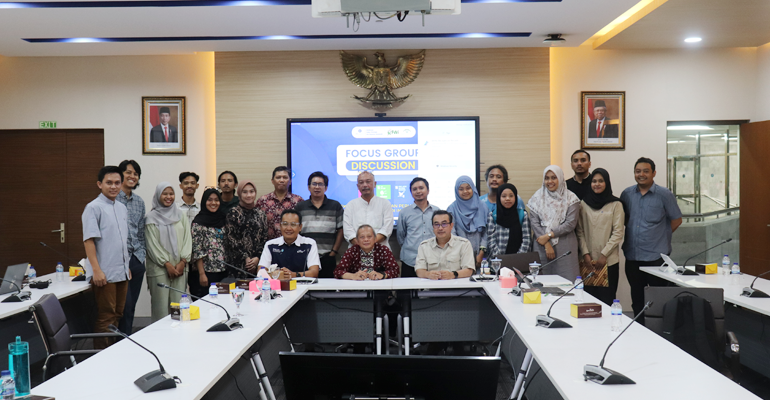DKSRA IPB University Holds FGD Discussing Protection of Natural Resources in Indonesia

The Directorate of Strategic Studies and Academic Reputation (DKSRA) held a series 3 Focus Group Discussion (FGD) with the theme of “Reflections on the Implementation of Protection of Natural Resources in Indonesia,” 15/8. The FGD activities were held because IPB University has an important role in mobilizing and helping to solve environmental protection problems in Indonesia, mainly through higher education tridharma activities.
Prof Ernan Rustiadi, the Deputy Rector of IPB University for Research, Innovation and Agromaritime Development, said that this activity was important to organize. According to him, activities like this can produce policy formulations that can be given to the government and other stakeholders.
“This discussion is urgently needed to correct and formulate existing gaps and solutions must be found regarding the protection of ecosystems and natural resources. This discussion is expected to produce a policy paper so that it can be used as a recommendation for IPB University and the government going forward,” said Prof Ernan Rustiadi, as the introductory word for this FGD session.
In the triggering session, Mufti Fathul Barri from Forest Watch Indonesia said that deforestation or releasing forests often occurs outside of permits, even though Indonesian forests are already being managed by the protected forest KPA. There are certain momentums that are indirectly detrimental to forests, regarding the relationship between politics and the release of forest areas.
“Surges in forest deforestation during government transitions often occur. This needs to be addressed, so we don’t repeat the same mistake,” he said.
Meanwhile, Ir Haryanto MSc, from the Faculty of Forestry and Environment IPB University, said the complexity of the problem of damage to natural resources has not changed from the 2000s to the present. This is also related to the absence of general agreement regarding performance measures and measures of damage in good natural resource management.
“Do you use biodiversity loss as a reference indicator? Apart from that, the fundamental problems are also related to the weak institutional framework, corruption, the absence of law enforcement on existing spatial planning,” he added.
Muh Ilman, from the Nusantara Nature Conservation Foundation (YKAN) stated that marine resources have important economic value, but the great damage to the sea due to exploitation and overfishing activities poses a separate threat to marine ecosystems. “To restore the ecosystem, we reactivate the old regulations in the local area and apply them to 11 provinces from west to east, one of which is “SASI,” he said.
He explained, this revitalization resulted in the size and yield of fish increasing every year. In practice, the size of sea cucumbers caught increases dramatically, including the emergence of rare species. These results indicate that government regulation is urgently needed because local regulations that have been in place are often not recognized by the central government.
At the end of the session, Dr Alfian Helmi, Assistant Director of Strategic Studies at IPB University added, there must be a common movement between universities, communities and NGO partners to make paradigm changes so that the protection and benefits of natural resources can be utilized for the greatest prosperity of the people. (*/ra) (IAAS/Res)



